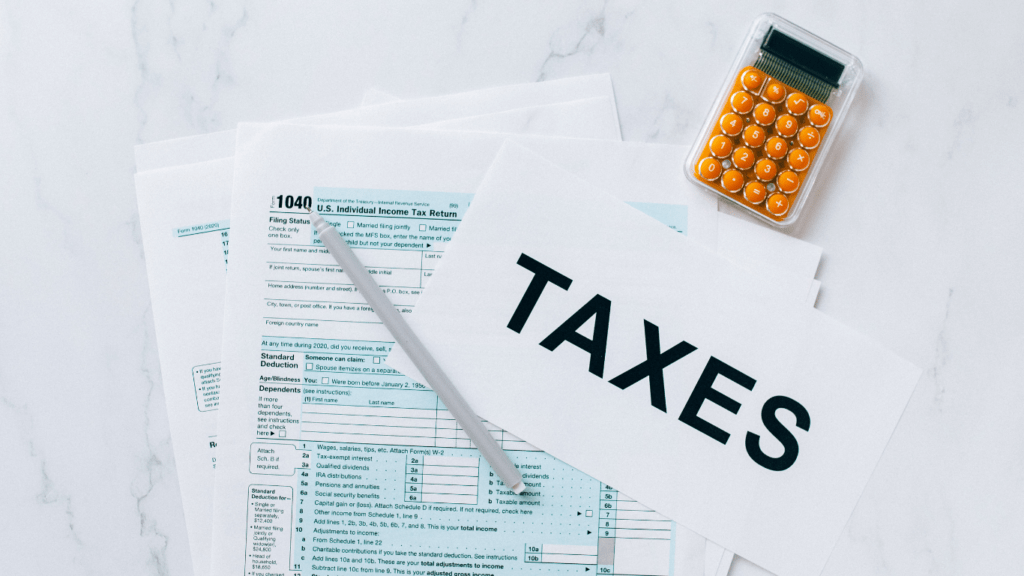Navigating the world of cryptocurrency investments can be thrilling, but when it comes to taxes, things can get a bit complex. As an investor in the crypto space, I understand the importance of implementing effective tax strategies to minimize liabilities and maximize returns.
In this article, I’ll share valuable insights on how you can optimize your crypto tax planning to stay compliant while keeping more of your hard-earned gains. From understanding capital gains to utilizing tax-loss harvesting, there are various strategies available to crypto investors looking to reduce their tax burdens.
As I delve into the intricacies of crypto tax planning, I’ll provide practical tips and expert advice to help you navigate this evolving landscape with confidence. Stay tuned to discover how you can proactively manage your tax liabilities and make the most of your crypto investments.
Understanding Crypto Taxation
As an investor in cryptocurrencies, it’s crucial to grasp the basics of crypto taxation to ensure compliance with the law and minimize tax liabilities. Understanding how cryptocurrencies are taxed can significantly impact your investment decisions and overall financial outcomes.
Here are key points to consider when it comes to crypto taxation:
- Tax Treatment of Cryptocurrencies: Cryptocurrencies are treated as property by the IRS, not as currencies. Each crypto transaction, whether buying, selling, or trading, may have tax implications.
- Capital Gains Tax: Profits from selling cryptocurrencies are subject to capital gains tax. Short-term capital gains apply to assets held for less than a year, with higher tax rates. Long-term capital gains taxes are lower and apply to assets held for over a year.
- Tax-Loss Harvesting: Tax-loss harvesting involves selling losing investments to offset gains and reduce overall taxable income. This strategy can be beneficial for balancing out capital gains and losses in your crypto portfolio.
- Reporting Requirements: Accurately reporting your crypto transactions is essential for tax purposes. Keep detailed records of all transactions, including dates, amounts, and values at the time of the transaction.
Understanding these fundamental aspects of crypto taxation is essential for developing effective tax strategies as an investor. By staying informed and proactive in managing your tax liabilities, you can optimize your investment returns and navigate the complexities of crypto taxation successfully.
Differentiating Between HODLing and Trading
Cryptocurrency investors often distinguish between HODLing and trading to optimize their tax strategies.
Impact of Holding Cryptocurrency
When I hold onto cryptocurrencies without frequent trading, it’s considered HODLing. HODLing can have tax advantages as long-term capital gains taxes are typically lower than short-term capital gains taxes. It’s important to understand the impact of HODLing on tax obligations.
Tax Implications of Cryptocurrency Trading
I keep in mind that each trade of cryptocurrencies can trigger taxable events, which may result in capital gains or losses. Short-term trading may lead to higher tax rates, while long-term trades can benefit from lower taxation.
Being aware of the tax implications of trading is crucial for effective tax planning in the crypto space.
Implementing Tax-Efficient Strategies
In implementing tax-efficient strategies for crypto investments, it’s essential to consider utilizing various methods to minimize tax liabilities effectively. These strategies can help optimize returns while staying compliant with tax regulations and maximizing gains.
Utilizing Tax-Loss Harvesting
When implementing tax-efficient strategies in cryptocurrency investments, utilizing tax-loss harvesting is a valuable approach. Tax-loss harvesting involves selling investments at a loss to offset capital gains and reduce taxable income.
By strategically realizing losses, investors can minimize their tax obligations and enhance overall tax efficiency. By strategically timing the sale of assets that have decreased in value, investors can offset gains from profitable investments, thereby lowering their taxable income.
This approach not only helps in reducing tax liabilities but also allows investors to rebalance their portfolios effectively. In the realm of cryptocurrency taxation, tax-loss harvesting can be a powerful tool for optimizing gains and managing tax liabilities efficiently.
It is crucial for investors to track their transactions carefully, maintain detailed records, and stay informed about the tax implications of their crypto activities to make informed decisions when implementing tax-loss harvesting strategies.
Incorporating Tax-Advantaged Accounts
Exploring tax-advantaged accounts is a crucial aspect of effective tax planning for crypto investors like me. These specialized accounts offer unique benefits that can help minimize tax liabilities and optimize returns.
When considering crypto investments, integrating tax-advantaged accounts into my strategy can provide significant advantages. One key option is the Individual Retirement Account (IRA), which allows me to invest in cryptocurrencies within a tax-advantaged framework.
By utilizing a self-directed IRA, I have the flexibility to include digital assets in my retirement portfolio while potentially benefiting from tax deferrals or even tax-free growth, depending on the type of IRA chosen. Another valuable tool is the Health Savings Account (HSA), which presents tax advantages for eligible medical expenses.
If I qualify for an HSA, I can allocate some funds towards crypto investments, allowing for potential growth on a tax-advantaged basis. It’s essential to note that HSA funds used for non-medical purposes may incur penalties, so understanding the rules is crucial.
Furthermore, a 529 savings plan can be another avenue to consider for tax-efficient crypto investing, especially when planning for education expenses. By leveraging a 529 plan, I can contribute after-tax dollars that grow tax-free and can be withdrawn tax-free when used for qualified educational expenses. Incorporating cryptocurrencies into this account can potentially offer tax benefits while saving for educational needs.
By incorporating tax-advantaged accounts like IRAs, HSAs, or 529 plans into my investment strategy, I have the opportunity to optimize tax efficiency, reduce liabilities, and enhance overall returns on my crypto investments. Being aware of these options and consulting with a financial advisor can help me make informed decisions that align with my tax planning goals.





